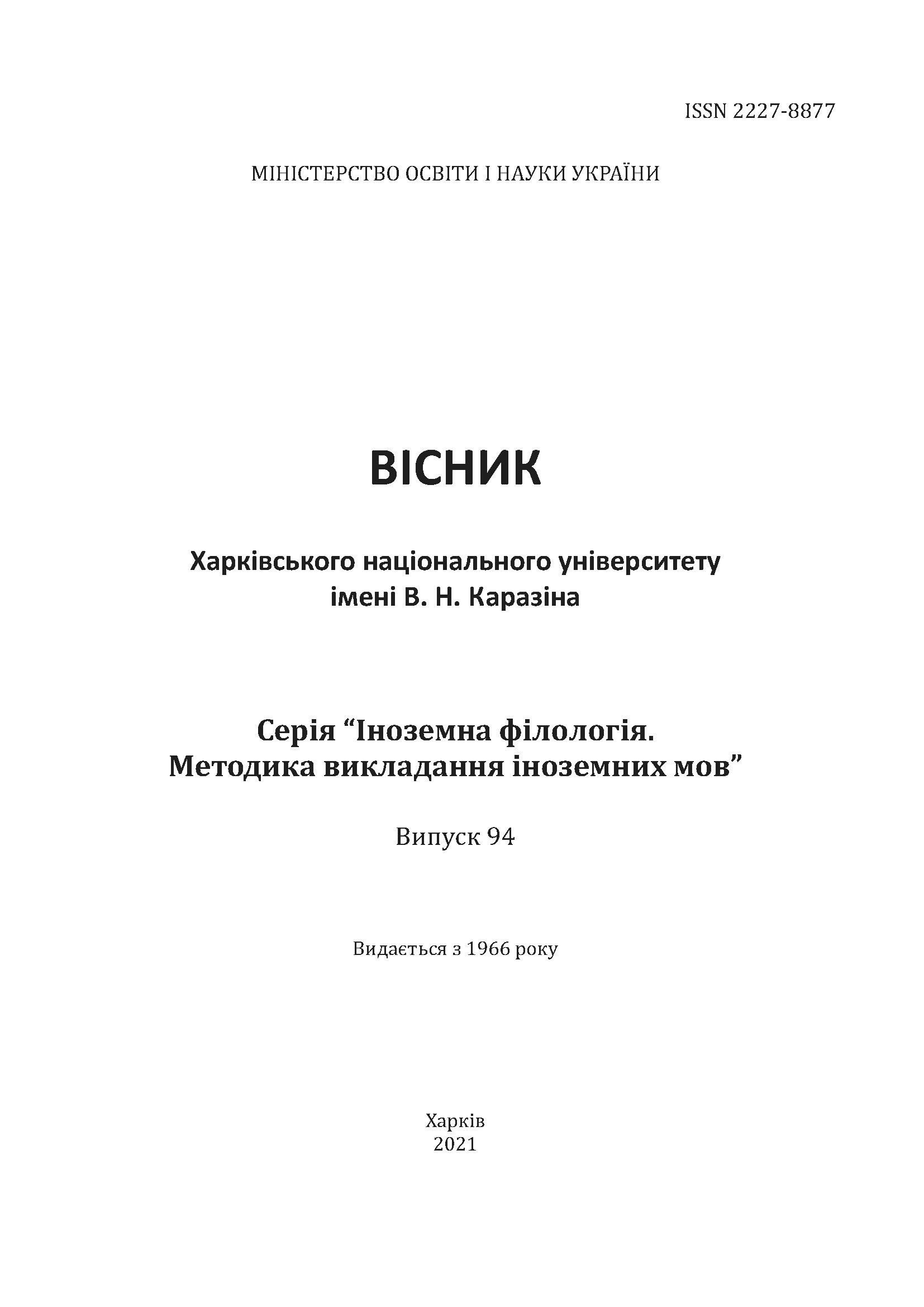The factors of ideological influence on translation (based on Ukrainian translations of E. Hemingway's novel “For Whom the Bell Tolls” in 1981 and 2018)
Abstract
This article provides a study into the nature of differences in Ukrainian translation due to the radical change of ideology in 1981 and 2018. Perceiving the ideological factors that influence translation activity as those of censorship, we suggest a classification that consists of three types: objective, relatively objective and subjective factors. Further on, we consider the manifestations of these types of factors influence in the Ukrainian translations of E. Hemingway novel “For Whom the Bell Tolls” by M. Pinchevskyi (1981) and A. Savenets (2018). The objective factor is beyond the sphere of translation activity as translators have no power over it. It consists in the necessity for a foreign literary work to go through the "filters" of censorship to get an approval for translation and publication. Despite absolutely different ideological considerations underlying this approval in 1981 and 2018, E. Hemingway's novel turned out to be successful in passing through such “filters”. The relatively objective factor, being a blend of censorship and self-censorship, consists in the mental representation of the censorship requirements in translators' mind. The influence of this factor comes in two varieties: omission of certain elements of the original text in translation and ideologically motivated restrictions in the choice of equivalents. Both are clearly seen in the Ukrainian translation of the Soviet period, while the recent translation is free of such influences. The subjective factor is that of self-censorship solely with regard to the potential reader's ideology and translation ethics. Its influence can be seen in the choice of different methods of translation/ translation transformations and/or different language means. The influence of this factor has been observed in the translations under study but the ideological nature of the registered differences requires a further detailed analysis.
Downloads
References
Andrii Savenets. Відновлено з https://zu.edu.ua/graduated36.html (in Ukrainian)
Bassnett, S. (2007). Culture and translation. In P. Kuhiwezak, & K. Littau (Eds.), A companion to translation studies. Clevedon; Buffalo; Toronto: Multilingual Matters LtD.
Bljum, A. (2005). «Internacional’naja literatura»: Podcenzurnoe proshloe [“International literature”: The past under censorship]. Inostrannaja literatura [Foreign Literature], 10, 298–299. (in Russian)
Calzada Pérez, M. (Ed.) (2006). Apropos of Ideology: Translation studies on ideology. Manchester: St. Jerome. Castro Ruz, Fidel.
Darnish, A. Towards at theory of constraints in translation. Retrieved from http://www.surf.net.au/ writescope/ translation/index.html.
Hemingway, E. For whom the bell tolls. Retrieved from https://content.ikon.mn/banners/2015/4/9/1468/Hemingweyfor-whom-the-bell-24grammata.compdf.pdf.
Heminhvei, E. (1981). Po komu podzvin [For whom the bell tolls]. Kyiv: Vyshcha shkola Publ. (in Ukrainian)
Heminhvei, E. (2018). Po komu podzvin. [For whom the bell tolls]. Lviv: Vydavnytstvo Staroho Leva. (in Ukrainian)
Mar Pinchevskyi. Відновлено з https://uk.wikipedia.org/wiki/%D0%9F%D1%96%D0%BD%D1%87%D0%B5%D0%B2%D1%81%D1%8C%D0%BA%D0%B8%D0%B9_%D0%9C%D0%B0%D1%80_%D0%9C%D0%B8%D1%85%D0%B0%D0%B9%D0%BB%D0%BE%D0%B2%D0%B8%D1%87. (in Ukrainian)
Merkle, D. (2010). Censorship. In Y. Gambier, & L. v. Doorslayer (Eds.), Handbook of translation studies, (Vol. 1, pp. 18–21). AMSTERDAM, the Netherlands: John Benjamin Publishing Company.
Merkle, D. External and internal pressures on the translation: Relation to censorship. Retrieved from http://webcache.googleusercontent.com/searchq=cache:mLVSHnt1_ioJ:www.ailcicla.org/2004/Denise%2520Merkle.doc+&cd=14&hl=ru&ct=-clnk&gl=uas.
Munday, J. (2007). Style and ideology in translation: Latin American writing in English. Routledge: London & New York.
Munday, J. (2014). Translation and ideology. The Translator, 13(2), 195–217. DOI: 10.1080/13556509.2007.10799238.
Orlowski, P. (2012). Power of discourse. Retrieved from https://www.researchgate.net/publication/238498480_The_Power_of_Discourse.
Sherry, S. (2012). Censorship in translation in the Soviet Union in the Stalin and Khrushchov Eras. Edinburg: The University of Edinburg.




